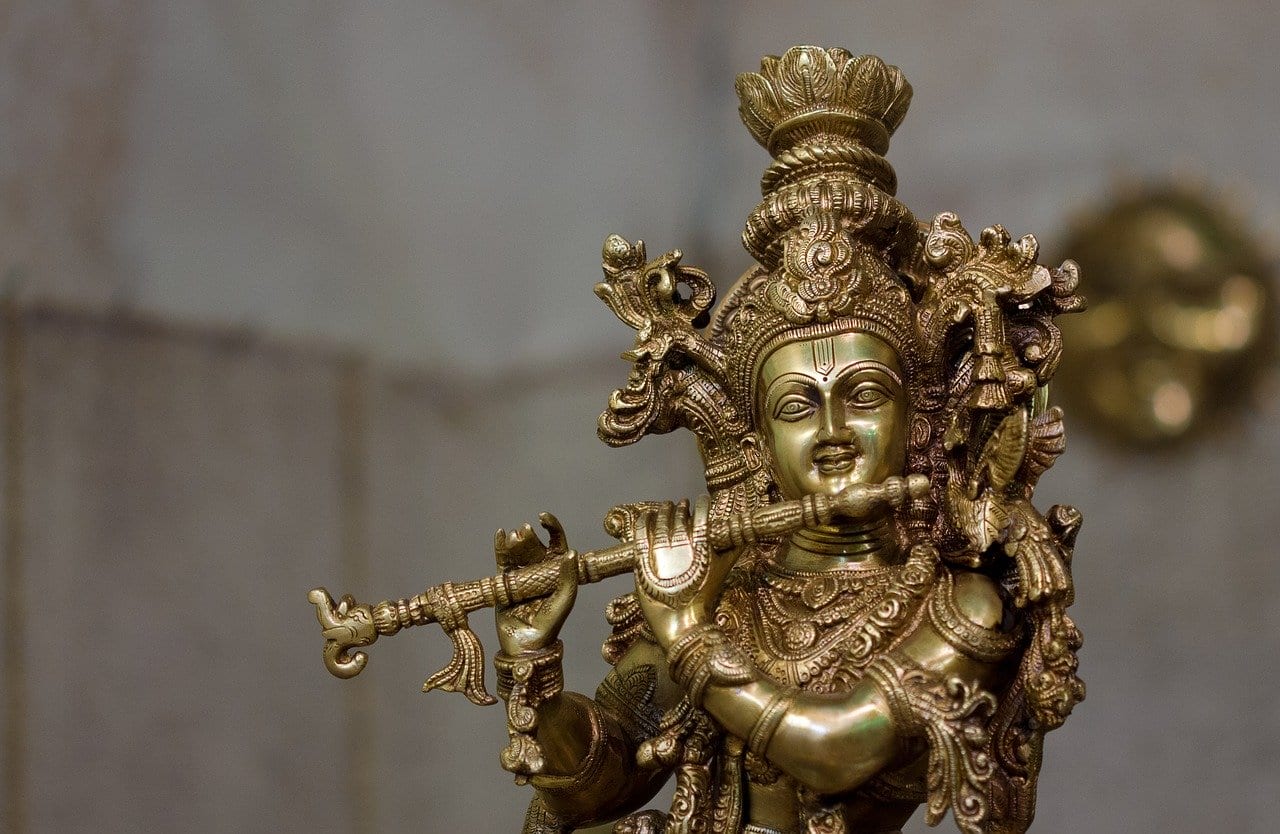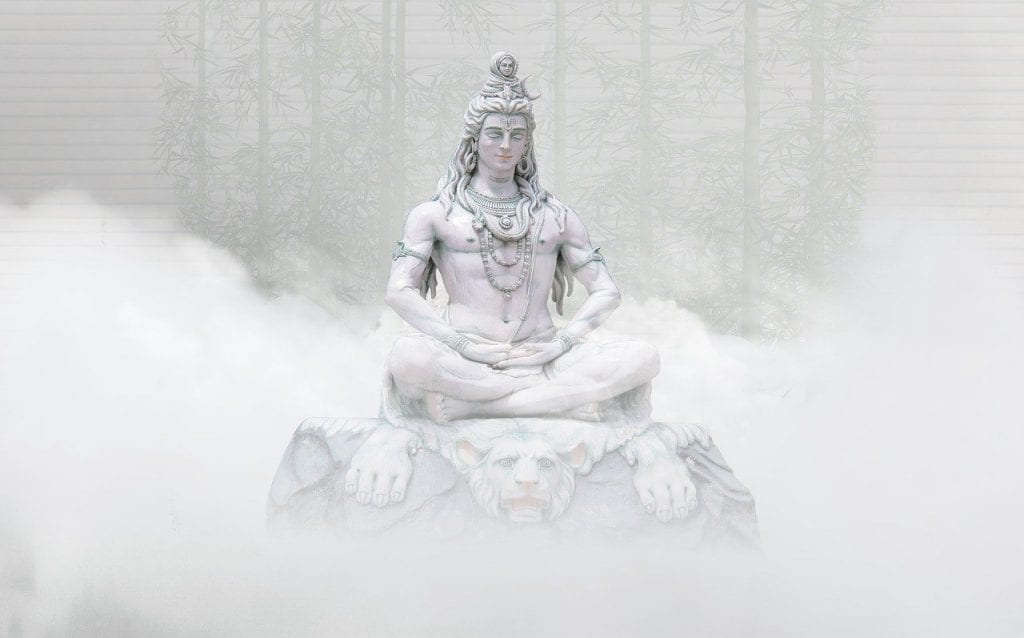
The purpose of life has been defined in various ways in different religions. Hinduism, the oldest and third largest religion of the world, interprets the goals of life as manifold and multi-faceted. The sacred texts of Hinduism advocate that there is a definite reason for the existence of the smallest to the biggest creature. They state innumerable anecdotes to support the purpose of each life form. While the non-living parts of Nature i.e. water, air, etc. serve to support life, the diverse living beings like plants, insects, animals, and humans exist to maintain an ecosystem.
According to Hinduism, purpose of life is to fulfill a set of duties within the time of one’s presence on earth. While humans are bestowed with intelligence, they may invest their mental abilities in committing evil and thus, choose the path of adharma (unrighteousness and vices). To prevent humans from taking the wrong route, Hinduism lays down major aims of life in four aspects, namely; dharma, kama, artha, and moksha.
Dharma
Dharma refers to the personal duty and purpose of one’s life. While on one hand, the higher purpose of every person is to serve the whole creation (or God), the personal duties vary as per one’s profession, family, relations, community and society. The Hindu scriptures emphasize that a human being should perform duties honestly and ethically, which will finally lead to his/her destiny. In other words, dharma enables a person to pay his/her karmic debts as well as repay the debts to the following five:
· parents and teachers/gurus
· guests
· friends and other humans
· other living beings
· gods
For instance, the debts to parents and teachers are paid by respecting and supporting them and passing on their teachings to one’s children. Similarly, the debt to guests is repaid by attending to them like they are gods gracing one’s home.
The debts to friends and other humans are returned by being empathetic and helping them when needed. Also, the debts to other living beings are requited by showing kindness, good will and compassion. And the debt to gods is reciprocated by prayers and ritual offerings.
The theory of dharma basically insists on a righteous and harmonious way of living.

Kama
Kama denotes the desires and pleasures of life. A person seeks enjoyment and happiness in many types of practical activities including artistic pursuits like painting, music, dance, writing; different kinds of sports and entertainment; and sexual love. This aspect of life’s purpose is regarded as a natural part of human instincts and allows for reproduction and healthy living. From relishing one’s favorite food and chasing one’s hobbies to developing companionship and rejoicing in marital bliss, kama plays a role in every social facet of one’s life.
Although kama acts as a motivation to discharge one’s worldly duties, the excess of it gives rise to sins like addiction, greed, anger, adultery, indolence, etc. Excessive pleasure ushers greater suffering and bad karma. As specified in Hinduism, purpose of life is to align one’s kama to life’s higher goal. For this, one should examine if that kind of pleasure evokes one’s genuine feelings and passion. If it distracts a person from his/her destiny or life purpose, it is nothing but an evil desire.
Artha
Artha implies wealth, success, and prosperity. Hinduism states that a person should struggle to attain his/her career goals and gain a reputed position in society by moral and legal means. This results in the progress of one’s community and society as a whole. By the way of artha, a person accumulates all material comforts and skills that assist in the fulfillment of his/her destiny. It also establishes one’s self-esteem to have a dignified lifestyle. Artha not only aims at tangible things that a person may possess but also the intangibles like knowledge and understanding of the world.
However, a person shouldn’t be obsessed with his/her material goals. In the scriptures of Hinduism, purpose of life is to work hard for material as well as spiritual wealth. At a point when one feels consumed by materialistic pursuits, one should introspect with these questions: What is my role in this world? What do I need to do to stand upon it? What are my priorities? What things are most valuable to me? Do I have sufficient? Are these things making me happy? Or are they destroying my mental peace? Am I scared of having less? Or having more? Apart from money, what do I consider as my wealth? With these queries to self, one can regain the lost balance and hence, move forward with a better perspective.
Moksha
Moksha is regarded as the final and most important purpose of one’s life. The meaning of word ‘moksha’ is ‘salvation or saved’. According to Hinduism, a person can achieve moksha by his/her good karma or deeds. The above-stated aspects of human life determine whether one will be able to get moksha or not. If one has conducted oneself perfectly well in the three aspects – dharma, artha and kama), one can break the cycle of rebirth and reach salvation. This involves paying back for the actions of one’s previous lives. Moksha is also called enlightenment, or awakening to higher purpose of one’s life.
The other interpretation of moksha asserts that when one carries out duties with a detached attitude, one is freed from all attachments and hence, liberated from pain. On the other hand, if a person feels restricted or forced to perform his/her duties, he/she is yet to attain the state of moksha. Since moksha appears like a perfect state of being, only a few people are capable of achieving it fully.
As per Hinduism, purpose of life can be attained by adopting these four targets as guides to right way of living. While all of them are essential, an overabundance of one aspect and underemphasis on others will bring discord in a person’s life. For example, a person who is too much focused on his/her career cannot spend time with family or friends, thus neglects his/her other duties.
With yogic practices and meditation, a person can consciously learn about his/her unique life purpose and make balanced choices accordingly.

